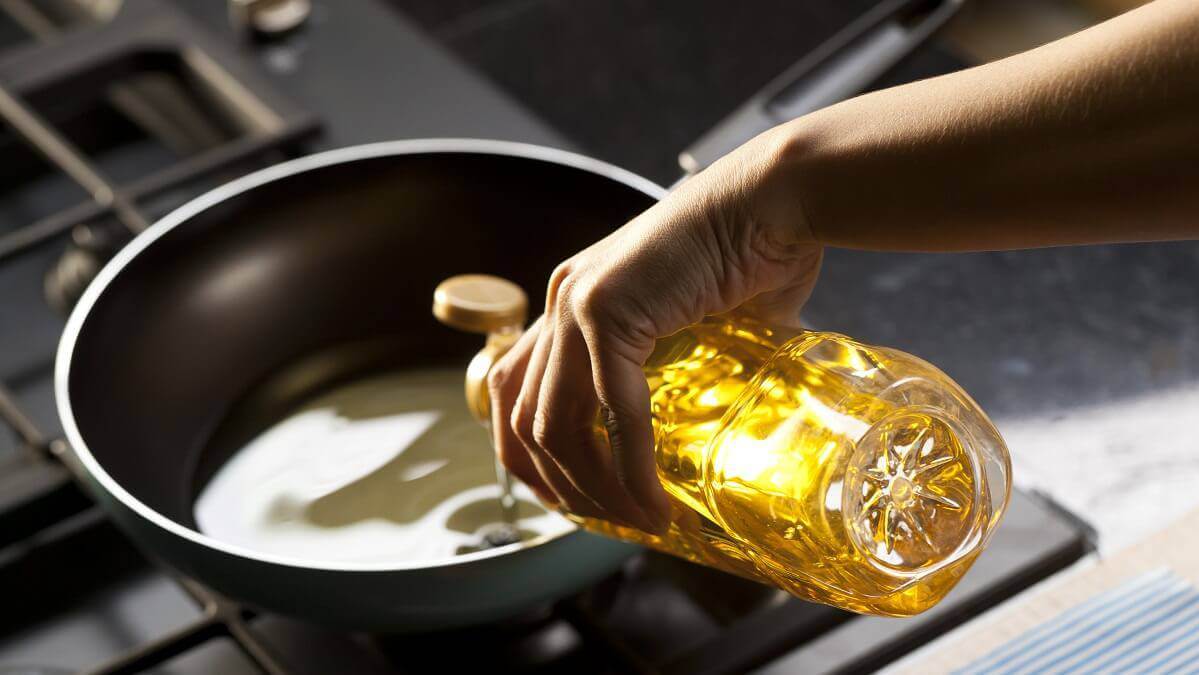So you’ve cooked up a delish meal, but there is a lot of oil left over. What to do?
The easy solution is to pour it down the sink, but you don’t want to do that because it could lead to a fatberg.
This unfortunately named phenomenon is what happens when people dispose of their cooking oils down the sink and they congeal and mix with solids such as disposable wipes and toilet paper.
It is just as disgusting as it sounds, but it also causes headaches for the people who run our water systems.
So what can you do?
Could you reuse it?
I can’t be the only person whose gran had a container at the back of the fridge for lard that was used over and over again.
You can do the same with cooking oil.
Firstly, let it cool and tip off any solids. Then pour it through a fine sieve or a sieve lined with muslin or cheesecloth or another open-weave fabric. Either freeze it if you don’t think it will be needed soon or stick it in the fridge if you think you will use it in the next week or so.
I wouldn’t reuse any oil I have been using to cook something with a strong smell such as fish, but each to their own.
You can also put a small amount on your compost. It will get rid of the oil, but be aware it will also slow down the composting progress.
Typically, this wouldn’t be for the amount of oil you would need for deep frying, but more suitable for the small amount for shallow frying.
It’s best to soak up the oil using paper towels or newspaper, rip them up into smaller pieces and then toss them into the compost.
This method is more suited for plant-based oils. Animal fats can be put into your compost in teensy amounts but will take longer to break down and they will also attract rats.
You can also pour used oil into a spray bottle and spritz weeds in your garden. The oil coats the plant and they should die. Probably not ideal where it will leave stains such as paving, but great in the open garden.
You could also use some to oil garden tools. Always best to once again use plant-based oils in these situations.
Disposing of oil
The best way to get rid of excess cooking oil you no longer want is to put it into a sealed container and throw it out with the rubbish.
The ideal container is something with a reusable seal such as a soft drink bottle or food jar so the oil doesn’t leak.
You can also use unused cat litter to soak up the oil, transfer it to a sealable bag and then toss it in the rubbish. This also works with sawdust or excess paper.
It may also be possible to take it to a professional oil recycler. Do an online search for your area to see if there is a convenient location near you.
Contact your local council to check if they offer a similar service.
If you have a good relationship with a local restaurant or café, ask them if they use a professional recycling service and perhaps you can add your excess used oil to their next drop off.
How do you dispose of your used oil? Do you use any of these methods? We’d love to hear about any other tips in the comments section below.


Most councils have an oil disposal/recycling dump at their garbage depots. We buy Australian olive oil in a 3 litre can, we keep an empty can in the workshop and all used oil including oil from bottled or canned foods goes in the can and eventually to the depot.
No oil should go down the drain and oil should be wiped off of utensils before washing. If you want lower water rates why add to the cost of maintenance?
We live on acreage and our used oil is poured down the holes of the aggressive ants and along the fence line to keep the weeds in check. Only happens around every 4 years or so as we usually don’t cook in much oil at all. Most of our food is grilled.